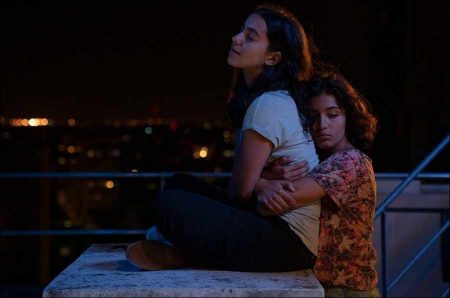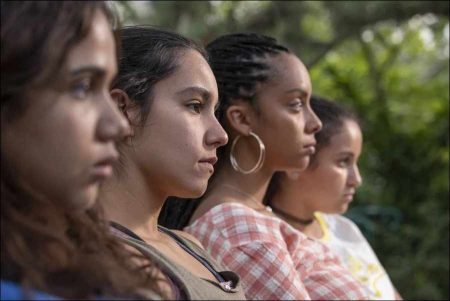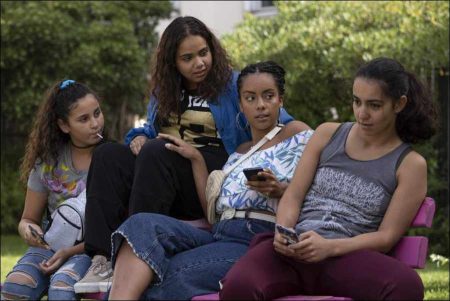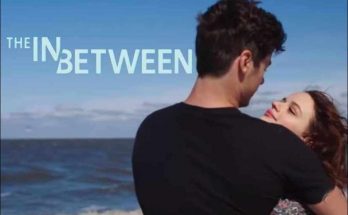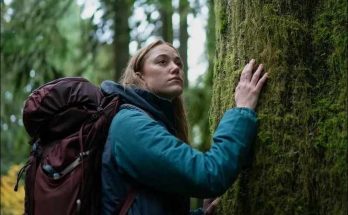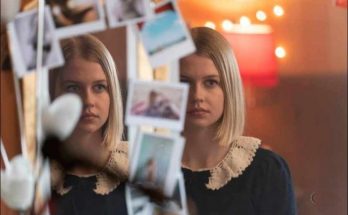Besties movie storyline. Paris. At 18, Nedjma (the excellent and charismatic Lina El Arabi, already to her advantage in Noces) moves very comfortably in her environment, a few streets where everyone knows each other, a very close-knit group of friends including her little sister, all the guys we “check” at the square where everyone has their own well-defined space (“you have to teach him the rules.
Here, it’s our bench”), the friends since kindergarten with whom she plays football occasionally, the youth club where we meet, and a loving mother (there is no father and it will never be mentioned in the film). It’s summer and since we can’t afford a vacation in a social environment described without any misery, we’re just planning a trip to the sea in Normandy.
But the arrival of a new neighbor, the beautiful Zina (Esther Rollande), completely turns Nedjma’s world upside down, capsizes her heart, propels her into the throes of love, into restless instinctive questions about her own identity, and puts her at odds with an entourage dangerously amplifying everything on social networks.
Besties (French: Les Meilleures) is French drama romance film directed by Marion Desseigne-Ravel and starring Lina El Arabi, Esther Bernet-Rollande, Mahia Zrouki, Tasnim Jamlaoui, Azize Diabaté Abdoulaye, Mariama Gueye, Laetitia Kerfa, Zoé Marchal, Fadela Bouanati and Sami Trabelsi. The screenplay was written by Marion Desseigne-Ravel.
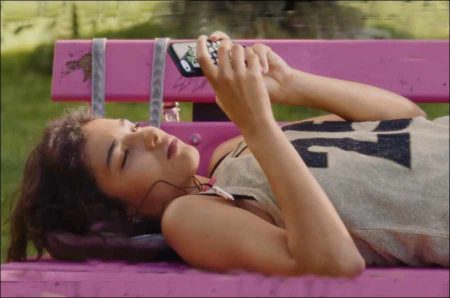
Film Review for Besties
Besties, or Les Meilleures, is a beautiful Romeo and Juliet-esque—or rather Juliet and Juliet—story set in modern-day Paris. It’s summer, and Nedjma (Lina El Arabi) spends her time hanging out with her friends and planning trips to the beach. Everything changes once she meets local newcomer and cousin to a rival squad’s leader, Zina (Esther Rollande). While destined to be enemies, Nedjma and Zina find themselves drawn to each other in the throes of first love.
With queer first-generation immigrants as the film’s main protagonists and a Parisian council estate as the setting, the film is wholly unique in its telling of the lives of these groups. We don’t see the glamour of Paris as in other films—instead, we get a glimpse into the reality of those who live in its poorer areas.
This gives the viewer an interesting look into the socio-economic divides of the city, Nedjma and her sister are largely left to their own devices with their mother having to constantly work. Similarly, the younger characters spend a lot of time attending a youth club, where they’re able to study and socialise safely, and it’s somewhat clear that this is for the poorer residents, there’s not a rich kid in sight.
While the origin of the rivalry is never shown, Nedjma’s friends take against Zina personally when they find her sitting on the park bench where they usually sit. It’s an interesting choice, as it seems an immature and ridiculous reason to hate someone quite as much as Nedjma’s friends do Zina. This works, though in a strange way. It’s certainly true that teenagers can turn on one another over nothing.
It also goes to show just how pointless feuds can be, especially when they get in the way of love. However, the lack of rivalry origin in this case, can at times feel like the story is only scratching the surface, with the viewer left feeling somewhat dissatisfied. Especially when it becomes clear that this is not some kind of long standing family feud, Nedjma’s mother seems confused at the actions of her children.
According to director Marion Desseigne Ravel, it was somewhat difficult to cast the roles as many actresses who were approached turned it down due to the nature of the film. Ultimately, this was perhaps for the best. Lina El Arabi and Esther Rollande are wonderful in the roles of Nedjma and Zina, respectively, and by the film’s end it’s hard to imagine them as anyone else. El Arabi brings a tenderly nuanced portrayal of tough girl Nedjma and her journey of self-discovery, while Rollande brings a softness to the role of Zina. Both are able to show their characters’ depths of emotion towards one another and the conflicts they feel in their personal lives.
Mahia Zrouki is equally satisfying in the role of Nedjma’s sister, Samar. The relationship between the two sisters spends most of the film fluctuating—just one of the ways it’s like any real sibling relationship, going from being the best of friends to Samar refusing to drink from the same milk bottle as Nedjma. Besties beautifully delves into the betrayal the two feel towards one another while still ultimately caring about each other.
It’s interesting to note that in Shakespeare’s Romeo and Juliet, Juliet is betrothed to a man named Paris, who shares his name with the city in which Besties is set. Desseigne Ravel has stated that this is just a happy coincidence, yet at times it does feel as though Nedjma is betrothed to her neighbourhood. She is forced to live out the expectations others have placed on her, such as attacking Zina for sitting on the bench and trolling her on Instagram—neither of which she actually wants to do. Like Juliet, her love is expected to be set aside for Paris.
Throughout the movie, we see messages on the screen between Nedjma and Zina, and while there are plenty of scenes of the two together, in some ways, the story is told through these texts. We see them text in secret when they can’t talk to one another in public. This works quite well as a narrative aid, showing that these two girls are forced to conduct their relationship in secret. We never see Nedjma text anyone else, further showing the divide between her public persona and private life.
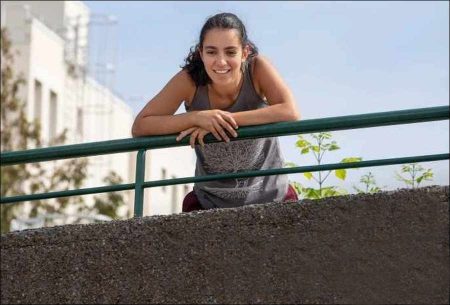
, Nedjma uses social media to check up on Zina’s accounts quite often, while the only time we see her look at anyone else’s is when her friends embark on a beach trip without her. While like the texts this shows the difference between the private and public Nedjma, it does feel somewhat inaccurate for a modern teenager. Especially one who cares a lot about their reputation and public image.
Avoiding spoilers, the film’s end manages to avoid the traditional conclusion of LGBT films, where either it ends tragically or the characters find complete acceptance. When neither of these ring exactly true to the viewer, and for many people the reality of queer life is somewhere in between the two.
Besties is a beautifully told story of two people falling in love, whose narratives have often been overlooked both by straight and queer cinema.
Besties is a film that isn’t afraid to take an expected narrative and flip it on its head by giving this story to an underrepresented group. It makes for a film that is well worth a watch for anyone.
Besties (2022)
Les Meilleures
Directed by: Marion Desseigne-Ravel
Starring: Lina El Arabi, Esther Bernet-Rollande, Mahia Zrouki, Tasnim Jamlaoui, Azize Diabaté Abdoulaye, Mariama Gueye, Laetitia Kerfa, Zoé Marchal, Fadela Bouanati, Sami Trabelsi
Screenplay by: Marion Desseigne-Ravel
Cinematography by: Lucile Mercier
Film Editing by: Elif Uluengin
Costume Design by: Constance Allain
Art Direction by: Clémence Pétiniaud
MPAA Rating: Hohe.
Distributed by: Le Pacte (France)
Release Date: August 27, 2021 (France, Festival du Film Francophone d’Angoulême), March 9, 2022 (France)
Views: 35
